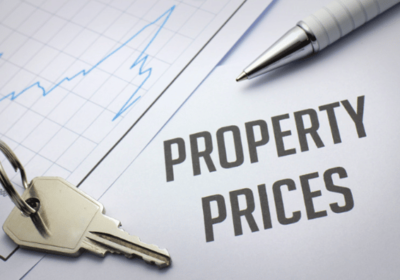A Guide to Renting in Australia
Whether you are a first-time renter or a longtime tenant, there is a lot to learn about renting in Australia. This guide will walk you through the basics of renting in Australia, including what you will need to do to find a place to live, how much you will have to pay, and more.
Introduction to renting in Australia
Those who advocate reform in the Australian housing sector have long recognized the structural flaws in the private rental sector. They have also recognized that Australia has an opportunity to shape a new generation of housing policy.
In the late twentieth century, a trend away from government provision of social housing was noticeable in the USA, Germany, and the UK. But Australia has a unique public housing system that differs from those in these countries.
Rent assistance has become a major program of Commonwealth expenditure for low income renters. The amount of assistance has increased significantly over the last two decades. In fact, rent assistance has surpassed expenditure on the CSHA since 1989-90 (source).
The amount of assistance provided has increased as has the number of rent assistance recipients. This is likely to have had an impact on the number of Australians in need of private rental accommodation.
One measure that may help to reduce rents is depreciation allowances for residential property. In particular, these measures could be useful in reducing costs to the private sector landlord or property investors.
What do I need to know about renting in Australia?
Approximately one in three Australians is renting a property (source). The ‘Australian property boom’ has transformed the country into a landlord’s paradise.
The cost of renting varies greatly depending on your location, your chosen property and its age. In addition to rent, utilities such as electricity and water are usually paid.
The cost of renting a one bedroom house in Australia can cost up to $500 a week (source). The cost of renting in Australia can increase with little warning. This means that it’s wise to plan ahead. Often, the cost of renting a property in Australia can be reduced if you share it with friends or relatives.
What is the process of renting in Australia?
Getting started with renting in Australia can be a stressful process. You must know what to expect, how to go about it and what you need to prepare.
First of all, you will need to find a reputable real estate agent. They will help you find and rent a house or an apartment. They can also process your application online or by email. They will give you an estimate of the time it will take to get approved.
You will need to provide your details, such as your income, and any references. This process may take up to 72 hours, so you should be prepared. You can also apply for more than one property. This gives you more options and will give you a better chance of finding the right rental.
You will also need to pay a deposit or security deposit. The amount of the deposit will vary depending on the state you live in and the rental situation. The deposit is typically for four to six weeks’ rent. The deposit is lodged with an authorised government agency in your state.
Why is it so hard to rent in Australia?
Vacancy rates in Australia are at all-time lows. As a result, more and more households are finding it difficult to meet their living expenses. These high rental costs are affecting the ability of many first home buyers to purchase their own home.
This is a result of a number of factors. One of the major drivers of increased demand is the decreased size of households. Another factor is the record number of first homebuyers.
The rental crisis is affecting not only the capital cities, but also small towns and regional areas. Some of these areas are more favourable for renters than others.
According to Property Club, there is a need for about one million additional rental properties. The problem is that fewer investors are willing to invest in property, which means there is a decrease in the supply of rental properties.
The demand for rental accommodation will be further boosted by the plan to reboot immigration. These new arrivals will need rental accommodation, as will temporary visa holders.
While there are a number of reasons for the rental crisis, experts are arguing that it has been a long time coming. This includes a number of bad government policies.
What’s the average rent in Australia?
Regardless of where you live in Australia, rent is a major expense. The average cost of renting a house in Brisbane, for example, is a whopping $620 a week (source). This means that an average renter spends more than $30,000 a year.
The price of renting a house in Australia also varies from state to state. However, the national median rent is a whopping $460 a week. In the capital cities, Sydney and Melbourne are the most expensive, while Darwin is the cheapest.
Australia’s average rent is on the rise. According to the latest Domain Rental Report, the median rent across eight capital cities is more than $400 a week (source). This is the highest amount on record. This figure was also the highest quarterly rise in rental prices in Australia’s history.
Is it cheaper to rent or buy in Australia?
Buying a house or apartment in Australia may be cheaper than renting, but the conditions will vary depending on where you live. If you’re in a regional area, your costs will be lower than in a big city like Sydney.
According to Domain research, buying a property is cheaper than renting in 13.8% of suburbs in September. The figures were derived from a model that looks at the financial cost of buying a property versus renting one.
Buying a property offers a sense of security and stability. It also gives you the option of personalising your home. However, renting offers more flexibility. For example, you don’t have to pay for rates, insurance, or maintenance. You can also move out of a rented home early if you’re unhappy with the condition.
Aside from the obvious advantages of home ownership, buying can also offer strong long-term tax-free capital growth (property investment). However, buying is still expensive in the Australian property market. The rising cash rate has slowed property price growth.
Buying is also more secure than renting, as there are no risks of being locked into a long-term lease. The security of tenure is a big draw for many Australians.
What do first time renters need to know?
Whether you’re moving out for the first time or moving into a new apartment, there are several things you need to know before you rent a property. The process can be stressful and overwhelming. Read on to discover a few tips on how to avoid making mistakes.
You need to be realistic and shop smart. You’ll need to make a budget for rent, security deposit, and other fees. Using an online rent calculator can help you determine your monthly budget.
It’s also important to understand your rights and your landlord’s expectations. Check to see if your landlord conducts background checks. Several states have laws in place to protect tenants’ rights. Also, if you have a pet, ask if it is allowed. Some apartments charge a fee for pets.
Renters should also know what utilities are included in the apartment. These may include water, electric, and garbage. Also, ask about automated bill payment options. Some apartments also require a security deposit.
Before signing the lease, you should carefully read the document to make sure you understand what you’re signing.






